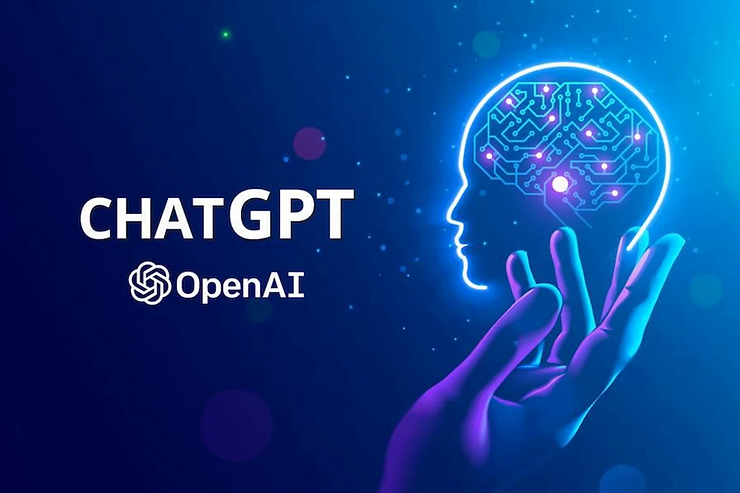Introduction
Effective communication lies at the heart of every successful business endeavor, and the field of accounting is no exception. Accountants constantly interact with clients, colleagues, and stakeholders, exchanging crucial financial information, insights, and advice. The advent of transformative technologies has paved the way for an accounting communication revolution, and one such technology making waves in the industry is GPT Chat.
The Relationship Between Chat GPT and Accounting
GPT Chat, powered by Generative Pre-trained Transformer technology, has emerged as a game-changer, reshaping the way accountants communicate, collaborate, and serve their clients. This remarkable tool combines the power of artificial intelligence and natural language processing to enable real-time interactions, instant feedback, and seamless collaboration.
The impact of GPT Chat on accounting communication cannot be overstated, as it streamlines processes, enhances client collaboration, improves efficiency and accuracy, and expands global reach.
In this blog post, we will delve into the fascinating world of GPT Chat and explore its profound effects on accounting communication. We will uncover how this technology simplifies and accelerates interactions between accountants, clients, and stakeholders. Furthermore, we will examine the positive impact of GPT Chat on client collaboration, efficiency, and accuracy in financial reporting. We will also address the challenges and ethical considerations associated with this transformative tool.
Join us on this insightful journey as we explore how GPT Chat is revolutionizing accounting communication, transforming traditional practices, and paving the way for a more efficient, collaborative, and interconnected accounting profession. Let’s delve into the impact of GPT Chat and unlock its vast potential in reshaping the way accountants communicate in the digital age.
Effective communication is of paramount importance in the accounting profession due to several key reasons:
- Facilitating Understanding: Accounting involves complex financial concepts, regulations, and terminology. Effective communication ensures that accountants can convey these ideas clearly to clients, colleagues, and stakeholders. It bridges the gap between technical accounting language and the comprehension of non-accounting individuals, enabling a shared understanding of financial information.
- Building Trust and Credibility: Accountants are entrusted with sensitive financial data and are responsible for providing accurate and reliable information. Effective communication builds trust and credibility with clients and stakeholders. Transparent and concise communication helps accountants convey complex financial matters in a manner that instills confidence, enhancing their professional reputation.
- Enabling Collaboration: Accountants often collaborate with colleagues, such as auditors, tax professionals, and financial analysts. Effective communication facilitates seamless collaboration, allowing team members to work together, exchange insights, and align their efforts towards common goals. It promotes efficiency, avoids misunderstandings, and ensures that everyone is on the same page.
- Supporting Decision-Making: Timely and accurate financial information is crucial for informed decision-making. Effective communication enables accountants to provide relevant and meaningful insights to stakeholders, helping them make well-informed decisions regarding investments, financial strategies, and risk management. Clear communication of financial implications and recommendations empowers decision-makers to take appropriate actions.
- Meeting Compliance Requirements: Accounting professionals must adhere to a multitude of regulatory and reporting standards. Effective communication ensures that accountants can convey financial information accurately and comprehensively, meeting compliance requirements. This includes preparing financial statements, disclosing information in accordance with regulations, and addressing inquiries from regulatory bodies.
- Enhancing Client Relationships: Accountants often serve as trusted advisors to their clients, providing financial guidance and strategic insights. Effective communication fosters strong client relationships by enabling accountants to understand client needs, explain financial matters, and address concerns promptly. It allows accountants to demonstrate their expertise, build rapport, and deliver exceptional client service.
- Resolving Issues and Avoiding Errors: Miscommunication can lead to costly errors, such as inaccurate financial reporting, tax miscalculations, or misunderstandings that result in financial disputes. Effective communication helps identify and resolve issues promptly, mitigating risks and preventing financial losses. It promotes clarity, accuracy, and attention to detail, reducing the likelihood of errors and misunderstandings.
The impact of GPT Chat on minimizing errors and enhancing accuracy in financial reporting and analysis is significant.
Here are some key ways in which GPT Chat contributes to these outcomes:
- Automation of Routine Tasks: GPT Chat is designed to automate repetitive and manual tasks in accounting. This reduces the chances of human error that can occur during data entry, calculations, and report generation. By automating these tasks, GPT Chat helps ensure accuracy and consistency in financial reporting.
- Real-time Error Detection: GPT Chat can be programmed to perform real-time error detection and alert accountants when potential discrepancies or anomalies are identified. This proactive approach enables timely intervention and correction of errors, minimizing their impact on financial reporting accuracy.
- Consistent Application of Accounting Standards: GPT Chat can be trained on specific accounting standards and guidelines. This ensures that the system consistently applies these rules in financial reporting and analysis, reducing the risk of human oversight or interpretation errors. By following predefined accounting principles, GPT Chat helps maintain accuracy and compliance.
- Data Validation and Reconciliation: GPT Chat can assist in validating and reconciling financial data across different sources, such as bank statements, invoices, and receipts. By cross-checking information and identifying inconsistencies or missing entries, GPT Chat helps accountants rectify errors and discrepancies promptly, leading to more accurate financial reporting.
- Sophisticated Data Analysis: GPT Chat is capable of analyzing large volumes of financial data quickly and accurately. By leveraging its computational capabilities, it can identify patterns, trends, and anomalies that might be challenging for humans to detect. This advanced data analysis enhances the accuracy of financial insights, enabling accountants to make more informed decisions.
- Natural Language Understanding and Interpretation: GPT Chat has the ability to understand and interpret natural language, including financial queries and instructions. This facilitates effective communication between accountants and the system, reducing the chances of miscommunication or misinterpretation that can lead to errors. Accountants can interact with GPT Chat in a conversational manner, ensuring accurate and precise information exchange.
- Enhanced Quality Control: GPT Chat can serve as a valuable tool for quality control processes in financial reporting and analysis. It can review and verify financial statements, perform internal audits, and identify potential errors or inconsistencies before the final reports are shared with stakeholders. This improves the overall accuracy and reliability of financial information.
- Continuous Learning and Improvement: GPT Chat can be trained on historical financial data, industry trends, and accounting best practices. As it continues to learn and improve over time, it becomes more adept at identifying errors, making accurate predictions, and providing valuable insights. This ongoing learning process contributes to the enhancement of accuracy in financial reporting and analysis.
Understanding GPT Chat
Understanding GPT (Generative Pre-trained Transformer) Technology
GPT (Generative Pre-trained Transformer) technology is a cutting-edge form of artificial intelligence (AI) that has revolutionized natural language processing (NLP) tasks. It is a type of deep learning model that has been trained on vast amounts of text data, allowing it to generate human-like text and understand language patterns.
The key component of GPT is the Transformer architecture, which is a neural network model specifically designed for handling sequential data like sentences and paragraphs. Transformers excel at capturing long-range dependencies and context within text, making them highly effective for language understanding and generation tasks.
GPT models are pre-trained on massive datasets, such as books, articles, and web pages, to develop a deep understanding of language and its nuances. During pre-training, the model learns to predict the next word in a sentence based on the context of the preceding words. This process enables the model to learn grammar, syntax, semantics, and even some level of world knowledge.
Once pre-training is complete, the GPT model can be fine-tuned on specific tasks, such as answering questions, generating text, or engaging in conversation. Fine-tuning involves training the model on a more specific dataset and task, allowing it to adapt its knowledge to perform well in that particular domain.
The power of GPT lies in its ability to generate coherent and contextually relevant text, mimicking human-like language patterns. It can understand and respond to queries, provide detailed explanations, generate creative content, and engage in interactive conversations. GPT has been employed in various applications, including chatbots, virtual assistants, content creation, language translation, and more.
Overall, GPT technology represents a significant breakthrough in natural language processing, leveraging pre-training and fine-tuning techniques to enable machines to understand, generate, and interact with human language in a remarkably sophisticated manner.
The capabilities and features of GPT Chat specifically designed for accounting purposes
GPT Chat, tailored for accounting purposes, offers a range of capabilities and features that revolutionize communication within the field. These include:
- Accounting Terminology Understanding: GPT Chat is trained on vast amounts of accounting-specific data, allowing it to comprehend and accurately interpret accounting terminology, principles, and concepts. This capability ensures precise and contextually relevant responses to accounting-related queries.
- Financial Data Analysis: GPT Chat can analyze financial data, including balance sheets, income statements, and cash flow statements, to provide insights and perform basic calculations. This feature helps accountants quickly assess financial information and answer inquiries related to financial analysis.
- Financial Reporting Assistance: GPT Chat can assist with financial reporting tasks by offering guidance on the proper presentation, disclosure requirements, and formatting of financial statements. It can suggest best practices for creating accurate and compliant reports.
- Taxation Support: GPT Chat is equipped with knowledge of tax regulations and guidelines, enabling it to provide guidance on various tax-related matters. It can help answer questions related to tax planning, deductions, credits, and compliance requirements.
- Industry-specific Insights: GPT Chat can be trained on industry-specific data to provide tailored insights and recommendations. Accountants can leverage this feature to obtain sector-specific guidance, such as understanding accounting practices unique to healthcare, manufacturing, or technology industries.
- Compliance and Regulatory Assistance: GPT Chat can assist accountants in staying up to date with changing accounting standards and regulations. It can provide information on the latest updates, interpretations, and compliance requirements, ensuring accurate and compliant financial reporting.
- Secure Communication: GPT Chat platforms prioritize data security and confidentiality, employing encryption and stringent access controls. This ensures that sensitive financial information shared during communication remains protected, adhering to privacy regulations.
- Audit Support: GPT Chat can provide preliminary audit support by helping accountants identify potential risks, control weaknesses, and areas requiring further investigation. It can offer guidance on audit procedures, standards, and documentation, streamlining the auditing process.
- Multi-language Support: GPT Chat platforms may offer multilingual capabilities, enabling accountants to communicate and assist clients globally. This feature facilitates communication with non-English-speaking clients and enhances collaboration in international accounting settings.
Exploring the Ethical Considerations of GPT Chat in Accounting Communication
While GPT Chat presents numerous benefits and opportunities for the accounting profession, it also raises important ethical considerations. As accountants embrace this technology, it becomes essential to address potential challenges and ensure responsible usage. Here are some key ethical considerations associated with GPT Chat in accounting communication:
- Privacy and Confidentiality: GPT Chat platforms must prioritize data privacy and confidentiality. Accountants must ensure that client information shared during interactions with GPT Chat remains secure and protected from unauthorized access. Safeguards like encryption, secure communication channels, and robust data storage practices should be implemented to maintain client confidentiality.
- Data Bias and Fairness: GPT Chat models are trained on vast datasets that may reflect societal biases present in the data. Accountants must be vigilant in recognizing and mitigating potential biases that could impact the fairness and objectivity of financial advice and recommendations provided by GPT Chat. Regular audits and evaluations of the system’s outputs can help identify and address any biases that may arise.
- Professional Judgment and Responsibility: While GPT Chat can provide valuable insights and recommendations, accountants must exercise their professional judgment and responsibility when interpreting and acting upon the information provided. They should critically evaluate the outputs of GPT Chat and validate them against established accounting principles, regulations, and the unique circumstances of each client’s situation.
- Transparency and Disclosure: Accountants using GPT Chat should be transparent with clients about the use of AI-powered technology in their communication processes. Clients should be informed that certain interactions and advice are facilitated by GPT Chat and that human accountants oversee and review the outputs. Clear disclosure helps maintain trust, manage expectations, and ensures that clients understand the limitations and capabilities of the system.
- Liability and Accountability: Accountants must clarify the extent of liability and accountability when using GPT Chat. While GPT Chat can contribute to accurate financial reporting and analysis, the ultimate responsibility for the outputs and decisions made based on GPT Chat’s recommendations lies with the accountants. They should clearly communicate to clients that they are responsible for the final review and validation of any information generated by the system.
- Ensuring Data Integrity: GPT Chat relies on accurate and reliable data for optimal performance. Accountants must ensure that the data input into GPT Chat is of high quality, free from errors, and adequately verified. Regular data validation processes and appropriate controls should be in place to maintain the integrity of the data used in interactions with GPT Chat.
- Transparency in Training and Fine-tuning: Accountants should be transparent about the training and fine-tuning processes employed to develop GPT Chat models. Clients have the right to know how the system has been trained, the datasets used, and the processes implemented to fine-tune the model for accounting-specific tasks. Transparency helps establish trust and provides clients with a clear understanding of the system’s capabilities and limitations.
- Continuous Monitoring and Evaluation: Accountants should regularly monitor and evaluate the performance of GPT Chat to ensure its accuracy, reliability, and compliance with accounting standards and regulations. Ongoing assessments of the system’s outputs, user feedback, and periodic audits can help identify any issues or improvements needed to maintain ethical usage.
By considering and addressing these ethical considerations, accountants can responsibly leverage the power of GPT Chat in accounting communication, maintaining professional integrity and ensuring the best interests of their clients and stakeholders.
Conclusion
GPT Chat has revolutionized accounting communication, enabling accountants to streamline processes, enhance collaboration, and provide more efficient and accurate financial services. Through its automation capabilities, real-time error detection, consistent application of accounting standards, and sophisticated data analysis, GPT Chat contributes to minimizing errors and enhancing accuracy in financial reporting and analysis.
While embracing the potential of GPT Chat, accountants must also navigate ethical considerations associated with privacy, data bias, professional judgment, transparency, and accountability. By addressing these considerations and ensuring responsible usage, accountants can harness the full benefits of GPT Chat while upholding their professional obligations and maintaining the trust of their clients.
GPT Chat represents a remarkable advancement in accounting communication, unlocking new possibilities for the profession in the digital age. As accountants continue to explore and refine the use of this transformative technology, they can embrace a more efficient, collaborative, and interconnected future, shaping the way accounting services are delivered and revolutionizing the profession as a whole.
The Relationship Between Chat GPT and Accounting




